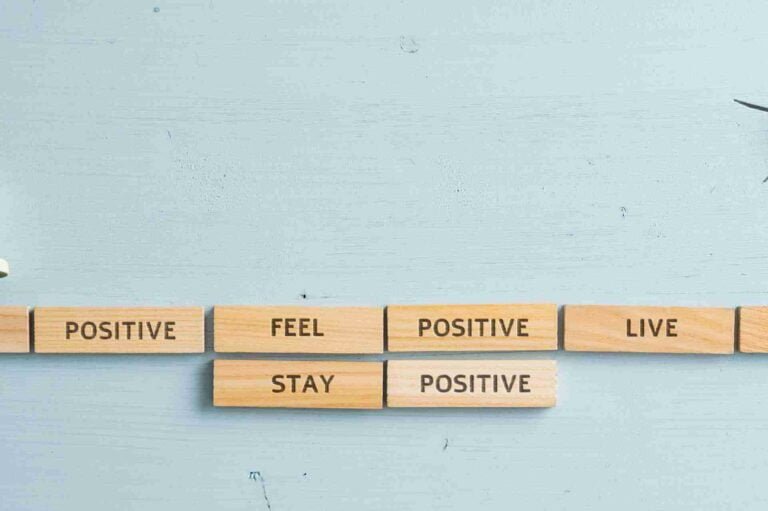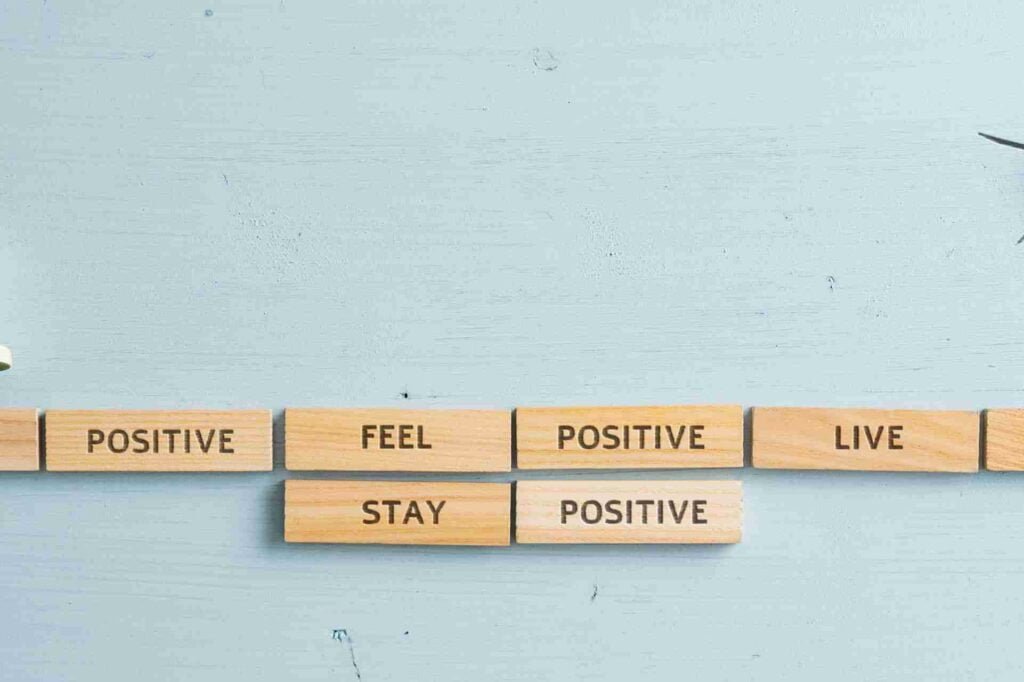Admit it: you want to be in control. It just feels better to have a sense of agency than to be a helpless victim.
But complete control is hard to attain. We live in a largely unpredictable world. How many times have you seen things going in the direction opposite to what you wished for?
- You worked your ass off to get noticed in the office — but were you recognized in the way you wanted?
- You put in long hours to turn your side hustle into an additional income stream — but where’s all the money you expected?
- Or maybe you set out to establish a new habit — but life got in the way and you just couldn’t pull it off?
The truth is that most of us want to control our lives, but we seldom can. No matter how much effort you channel into your goals, there will always be variables you can do nothing about.
This became very clear to me after I got into online writing.
When I started, I used to binge on blogging advice. I internalized the message that if I put in the hours, I will inevitably get what I want. But over the past year, I was proven wrong.
I realized that no matter how many words I put out there, there are dozens of other factors influencing the outcome. The factors I simply can’t control.
For example, I don’t have a say over my readers’ behaviour. Sure, I do whatever I can to write great articles and headlines that encourage people to click. But in the end, I can’t force anybody to do it.
A part of my success as a writer will always be beyond my control.
This realization was sobering and it made me trade the idea of control for that of being in charge. The two seem almost synonymous, but they differ at a fundamental level.
One encourages you to live in an illusion. The other presents you with a more accurate image of reality.
Today, I want to encourage you to become in charge — instead of trying to control your life.
The Difference Between Controlling and Being in Charge
Most people try to control their lives. You know you’re doing it whenever you notice a desire for things to be different than they already are.
This is what control does: it makes you fight reality. It entertains a fantasy that you could somehow change the past. The attitude of control blurs the line between what’s within your power to change and what isn’t. When you want control, you pretend that everything is subject to your reign.
This is, of course, delusional. As much as you can shape your destiny, you can’t control every detail of it.
Being in charge becomes an alternative state when you grasp this truth. There are aspects of your life that you get to decide about — and some others that you simply don’t.
This means you learn to accept any situation you’re in. At the same time, you don’t victimize yourself. You embrace the belief that there’s always something you can do.
An inspiring example of a person in charge is my mom. As I write these words, I can hear her walking around the ground floor of our house. This has been her morning workout for a few months now.
In October, she suffered from sciatica and has been finding it hard to walk since then. One of her legs became weak and she couldn’t leave the house on her own. However, to recover, she needed to walk.
So she started taking short and then longer walks… inside the house. She set up a daily step goal and she trains with a phone in her pocket. She organized her workout the way she could: at home, where she felt safe enough to walk on her own.
Note that she couldn’t control sciatica developing in the first place. But knowing that she had to exercise, she found a solution. She took charge of the situation by owning those choices that she still could make.
My mom helped me realize two important things. First, there’s always something we can do in response to what happens. Second, any situation we ever experience consists of these three elements:
- Physical setup
- Your perception of what happens
- Your response
It’s crucial to understand how much agency you have over each of those components. Once you have this understanding, you’ll not only see that there’s always something you can do, but you’ll also become better at identifying what this “something” is.
You Can’t Control Your Physical Setup
Your physical circumstance is where the illusion of control is most powerful. Surely it’s you who decides where you go, who you spend your time with, what you eat for lunch, etc.?
Of course it’s you. The problem is, the setup you’re in right now is often a consequence of your past decisions. In my mom’s case, one could argue that her sciatica was a consequence of failing to take care of her health. Hence, she had control over that situation.
The trick here is that even if it were her decisions that led to sciatica (which is debatable), those decisions are already in the past. This means that she can’t change them. In the present, she has to deal with the necessity to recover from her condition.
In this sense, the physical setup you experience in the moment is never entirely within your control. It may be true that your decisions led to it. But this doesn’t change the circumstances that you have to deal with right now.
Accepting (rather than fighting or denying) them is usually the best starting point to elicit a positive response.
You Partially Decide On Your Perception Of What Happens
Once you accept the hard material reality, you can look at the aspects you have more agency over. The first is your perception of what’s happening.
Unless you’re a mindfulness master, perception isn’t something you can entirely control. That’s because perception is a result of what you put your attention to. Where your attention goes impacts how you see the world.
Luckily, attention is something you can train and become better at directing intentionally. That’s probably what you should start doing if you want to be in charge of your life.
Here’s why according to Rick Hanson:
“[…] if you regularly rest your mind upon worries, self criticism, and anger, then your brain will gradually take that shape — will develop neural structures and dynamics of anxiety, low sense of worth, and prickly reactivity to others. On the other hand, if you regularly rest your mind upon, for example, noticing you’re all right right now, seeing the good in yourself and letting go…then your brain will gradually take the shape of calm, strength, self confidence, and inner peace.”
How you manage your attention matters. It matters because, over time, it shapes your perception of reality. This has a tangible impact on whether you see yourself as a helpless victim — or an active creator of your experience.
I’m proud to say that my mom proved to be the latter. After going through a great deal of pain (not just sciatica, but also other chronic conditions), she still looks for possibilities to improve her situation. She never managed to get rid of her pain completely. But it doesn’t mean she stopped doing what she can to make things better.
She perceives herself as an active player in her life. If she thought of herself as a victim, she would have given up and maybe even stopped walking altogether.
Instead, she focuses on what she can do. For the moment, it means walking miles around the house.
You Are Entirely In Charge Of Your Responses
Finally, there’s the third aspect of any situation you’ll ever find yourself in: Your response to it. It’s important to acknowledge that you’re always responding, whether you think you are or you don’t.
No response is also a response — and often, a very impactful one.
Interestingly, people often forget this, even though this is the only thing we have real agency over. Many times, I heard myself and others say things like:
“I couldn’t have acted differently.”
Or:
“I just had to say it.”
Such statements are merely figures of speech. The truth is, you always have a choice. Sure, sometimes the alternative seems ridiculous, wrong or not worth pursuing for other reasons. But it doesn’t change the fact that it exists.
You always have a choice.
Even when you remain what you call “passive,” that’s a choice that has consequences. In my mom’s case, that’s very clear. If she remained passive without trying to walk, this would also be a response.
It would be a response that says: “I give up on my health. Now whatever awaits me, let it be. Knowing my condition, this probably means my leg never fully recovers.”
This kind of non-action would be an impactful response to what happened to her. Luckily, my Mom recognized that she also had a choice to walk.
Instead of pretending she couldn’t do anything, she decided to take charge of her health.
You Can’t Control Everything, But Don’t Give Up On What You Can Do
Life often feels hard. Many things are beyond your control. Sometimes, these seem to be precisely the things that hold the keys to our happiness.
Whenever you wish to change that which you can’t, here’s a reminder:
You don’t need to control everything in life. It’s enough to simply be in charge.
Being in charge means to:
- Come to terms with what you can’t change.
- Be intentional about where you direct your attention.
- Remember that any situation involves a choice on your side.
Being in charge isn’t about always having it your way. Things will happen that you’d prefer not to experience.
But knowing that you have agency over some aspect of your life — why wouldn’t you take full advantage of it?
- Self Harm Awareness Ribbon Color: Unveiling Its Meaning - August 21, 2023
- What Is Emotional Self Awareness: A Guide to Inner Growth - August 21, 2023
- Self Harm Awareness Bracelets: Show Support and Share Hope - August 21, 2023


